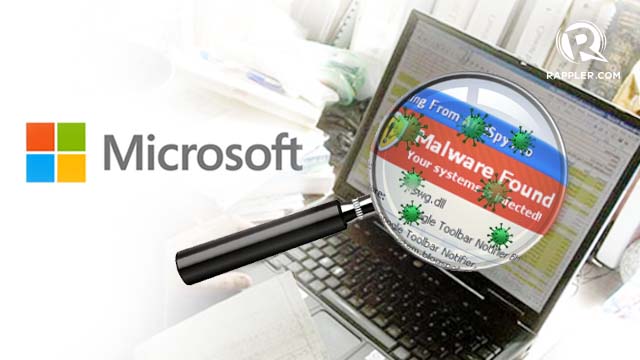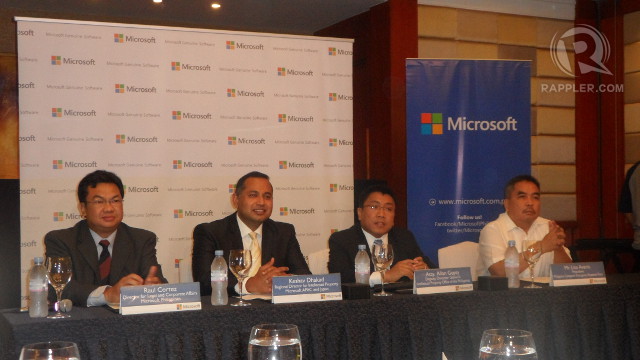SUMMARY
This is AI generated summarization, which may have errors. For context, always refer to the full article.

MANILA, Philippines – At a press conference on Monday, February 25, Microsoft announced the results of a forensic study on malware threats, noting that people had to take caution not only in avoiding buying pirated software, but also in ensuring their purchased PCs do not have malware pre-installed by unscrupulous vendors.
The study looked at a total of 282 samples made up of 216 brand-name PCs with pirated software installed and 66 counterfeit software DVDs. These samples were sourced from Indonesia, Malaysia, the Philippines, Thailand, and Vietnam.
After examining the computers and DVDs, Microsoft noted a malware infection rate of 69%, increasing 6 points from its initial study done in December 2012. A total of 68% of the sampled computers contained malware, and 74% of the sampled DVDs contained malware.
The study notes that even well-known PC brands were affected by the malware issue. Microsoft thinks, however, the manufacturers themselves weren’t to blame.

Instead, the company believes the computers were using non-Windows operating systems, which were replaced in the downstream supply chain or retail channel with malware-laden counterfeit Windows operating systems. Their study also showed evidence that some of their sampled computers had their hard drives swapped with inferior drives that may have had the malware pre-installed.
Out of 5,601 strains of malware, 1,898 of the strains bypassed security checks, and 3,703 of the malware strains were considered hostile, or malicious enough to cause damage or steal information.
Microsoft’s testing showed 1,131 unique strains of malware and virus infections in its Southeast Asia sample, including the Zeus Trojan, which uses keyloggers to steal data and identities from affected users.
The testing also showed that the malware altered rules on security software. In its report, Microsoft noted that 97% of the sampled computers had its Windows Firewall rules changed, and 79% of the sampled computers had Windows update disabled.
Keshav Dhakad, Regional Director for Intellectual Property of Microsoft Asia-Pacific and Japan, reminds consumers to be wary. “While they might think there are great deals to be had by looking the other way,” he notes, “the hidden cost of pirated software is significant, and contrary to popular belief, can’t be remedied by simply running anti-virus software.”
Dhakad adds, “If a consumer can’t verify that the computer they purchased was shipped with a pre-installed, genuine copy of Windows, their risk of exposure to viruses and spyware – and the potential for data corruption, theft, and financial loss – increases exponentially.” – Rappler.com
Add a comment
How does this make you feel?
There are no comments yet. Add your comment to start the conversation.